photos by Eli Berrios
I played gay Survivor in Florida…and I was the first contestant voted out. I know, not a great way to start off a game about surviving, or a follow up from a piece I wrote last month about how great I am at deception. Although we lived in cabins with AC and snacks, the betrayal, drama, suspense, and drag were all deeply part of gameplay. Out-gay, Out-slay, and Out-sport are the three pillars of OUTVIVOR, a Survivor-inspired weekend birthed by OUT Sports, an Orlando queer sports league started by John Teixeira in 2018.
After the Pulse tragedy, Teixeira wanted to create something to give back to the community. He was involved in an LGBTQ+ sports league while living in New York City and noticed Orlando was missing a place for queer folks to connect offline. His intention is to “provide an oasis for queer Floridians to be themselves in a state that has become more hostile to them.”
We combat this with radical joy. Teixeira points out that so many people in Orlando may never have met and connected with each other if it weren’t for the league, which also has helped organize fundraisers and events to support local organizations.
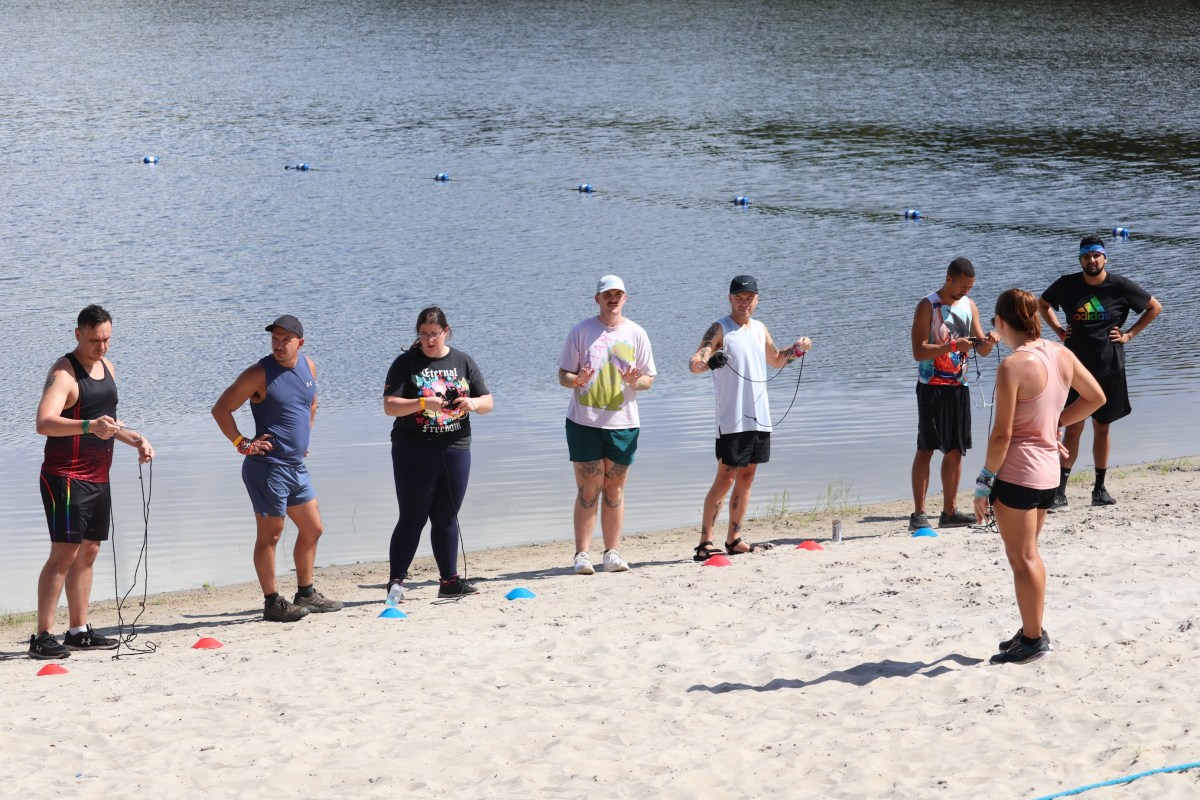
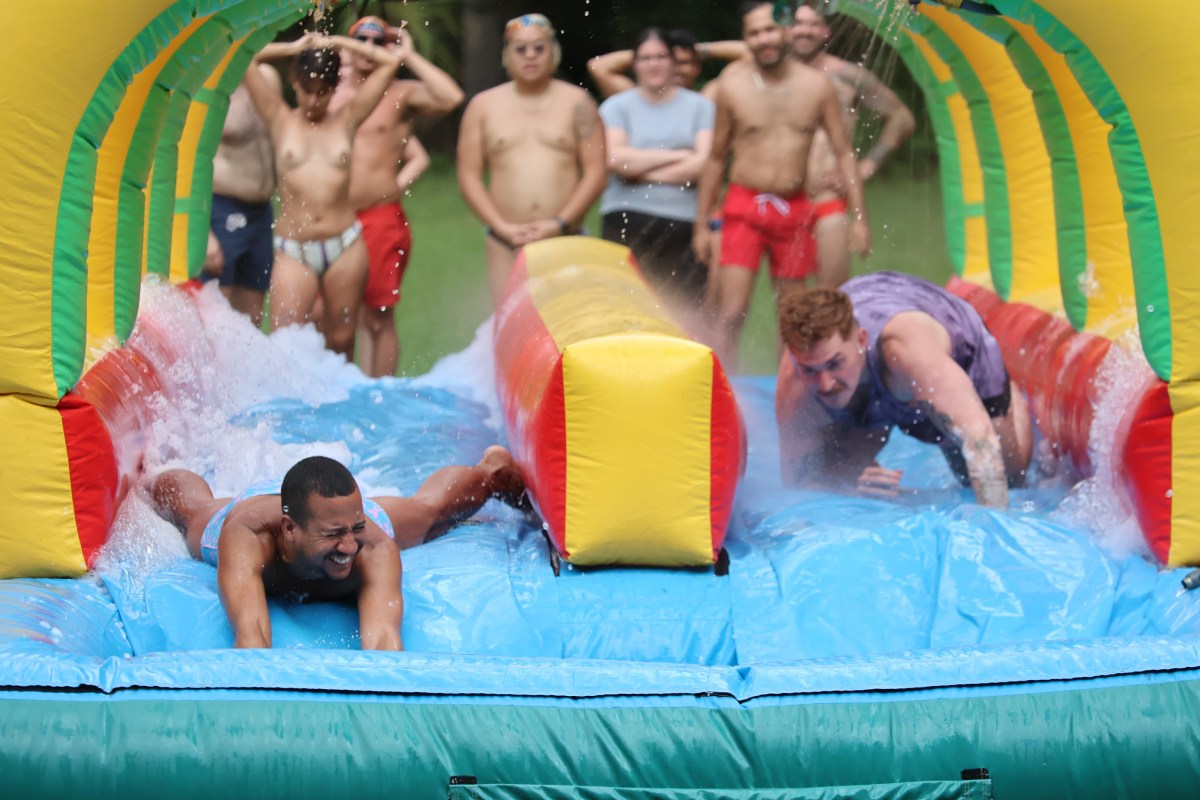
Jeff Fusco and Samyra Safraoui, two friends and teammates in the OUT Sports kickball league, started a Social & Philanthropy committee for the OUT league and, as big fans of Survivor, thought it would be fun to do a queer version of the competition with the league. It was important to them that they “created an experience that was focused on fun and community building,” as Fusco explains. The first year had a non-elimination format, but in just three years of entirely volunteer-run planning over nine months each year, they’ve become more inventive in building out the reality TV format for real life play.
This year’s theme, Camp Carnage, offered the OUTVIVOR team a chance to craft a real-life competition show that combined cutthroat and convoluted themes of shows like Squid Games, The Traitors, and The Purge. The gameplay followed a structure loosely inspired by Survivor, with participants divided into groups, competing in challenges, and voting members off at tribal councils. As with Survivor, the goal is to be the last person standing, which is achieved through a delicate balance of creating alliances and winning physically and mentally arduous challenges.
Going into the weekend, my friend and I agreed to remain distant, share information, and conceal that I’m a therapist. All 50 of us were split into groups and then shuffled to a mixer to bond and create flags. My team, Freddy, named after Freddy Krueger, seemed promising and trustworthy. Before our very first council, I made a pact with the two other femme/gender non-confirming folks on Freddy. We were all on edge about the three cis queer men taking over the game, so our private strategic conversations felt genuine. It was queer Survivor, so I thought maybe my sincere approach would make it at least until the merge. As it turns out, queer Survivor brings all of the blood, sweat, and tears as mainstream Survivor — just with more camp.
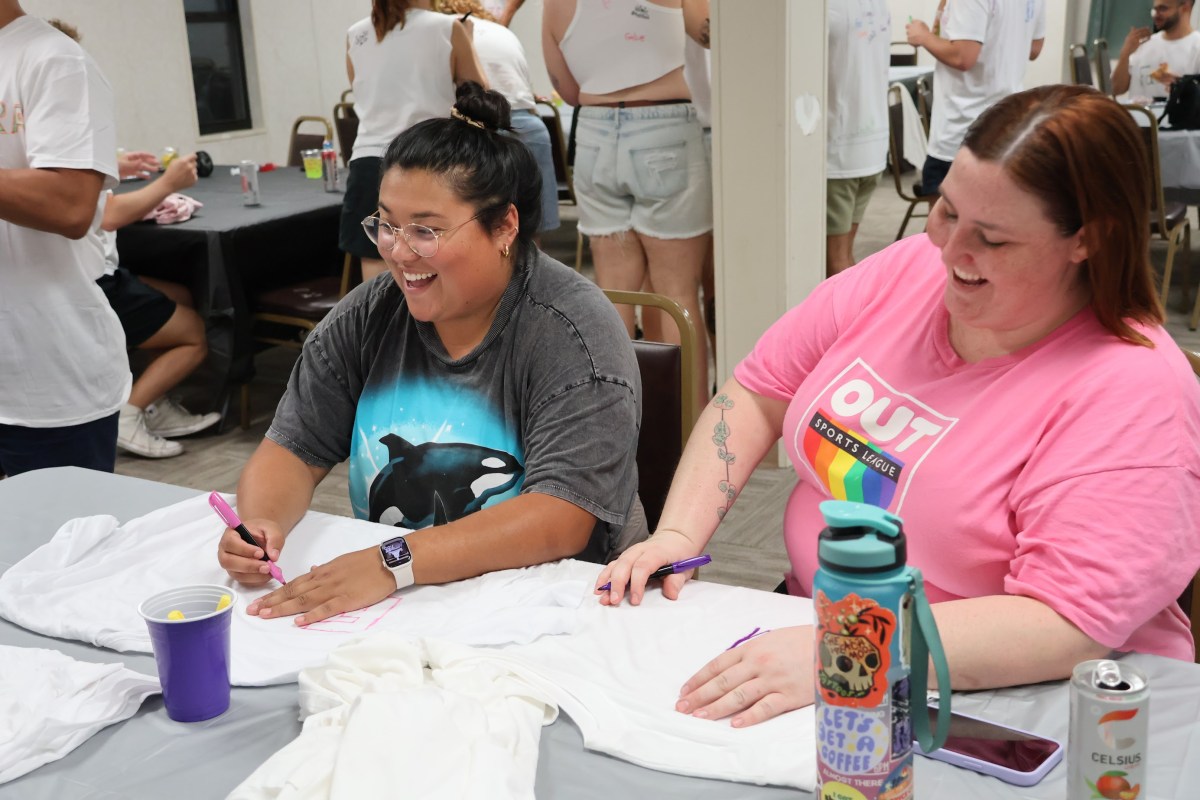
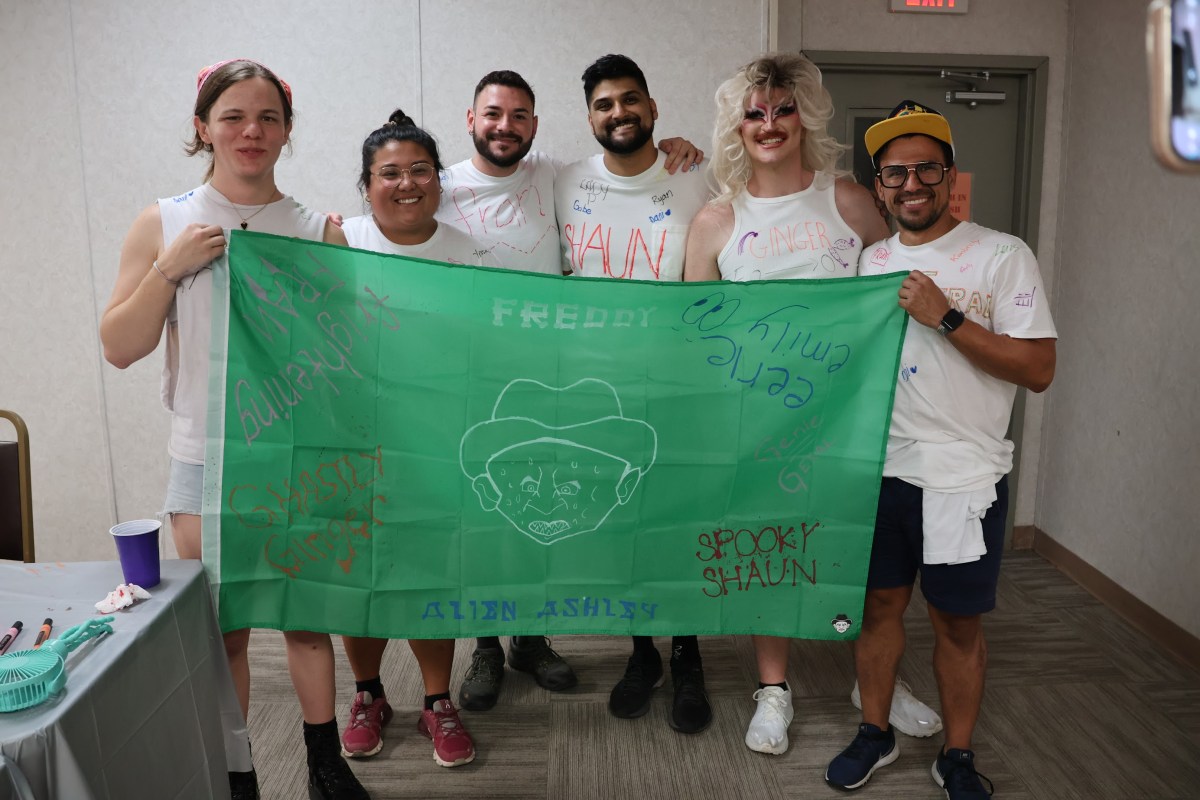
One unique aspect of OUTVIVOR is the role of people no longer in the game. Ghosts can participate in side challenges and influence the outcome of players still in the game. As a ghost, I vowed to do everything in my power to keep my fellow girlies in. Additionally, I did everything in my power to collect “soul tokens,” or raffle-tickets that could eventually give us an opportunity to get back in the game. This is how I eventually ended up haphazardly performing a lip sync for your life battle to the Glee cover of “Thriller/Heads Will Roll” against a drag queen in full drag.
The weekend of regular gameplay included a mixture of new and inspired field-day challenges, such as multi-component relays including running, swimming, tossing, shooting, and puzzle-solving as well as a slip-n-slide meets Midwest ball-toss relay game. I generally avoid running and extreme physical activity, but this space gave me a chance to explore some of these playful activities without judgment. One of the gals from my cabin expressed how she wanted to get catapulted by the blob. Both of us were camp girlies, and it had been so long since we could do something as ridiculous as launch each other off of a large inflatable into a lake potentially infested with alligators. In my nearly 30-year-old body, smacking against a hot canvas and rolling into water could’ve given me a small concussion, but nothing quite matches the exhilarating pit in your stomach that comes with free falling 20 feet for fun.
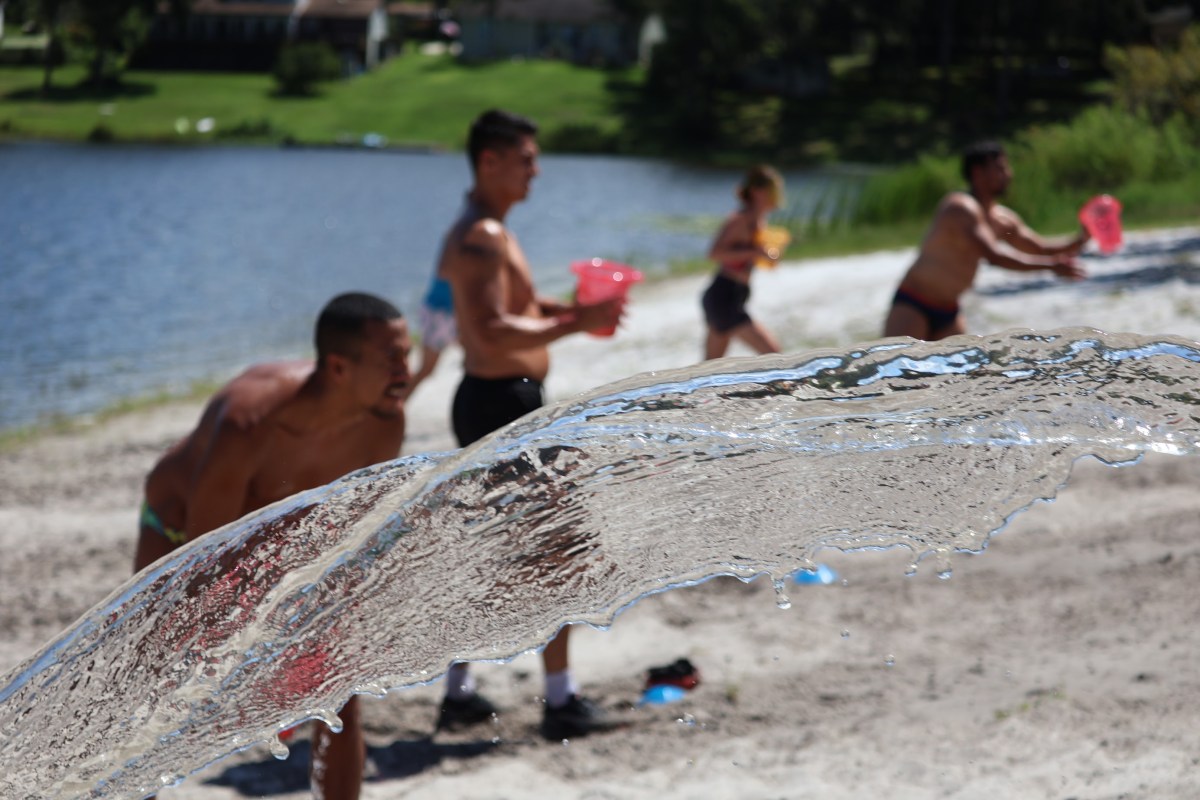
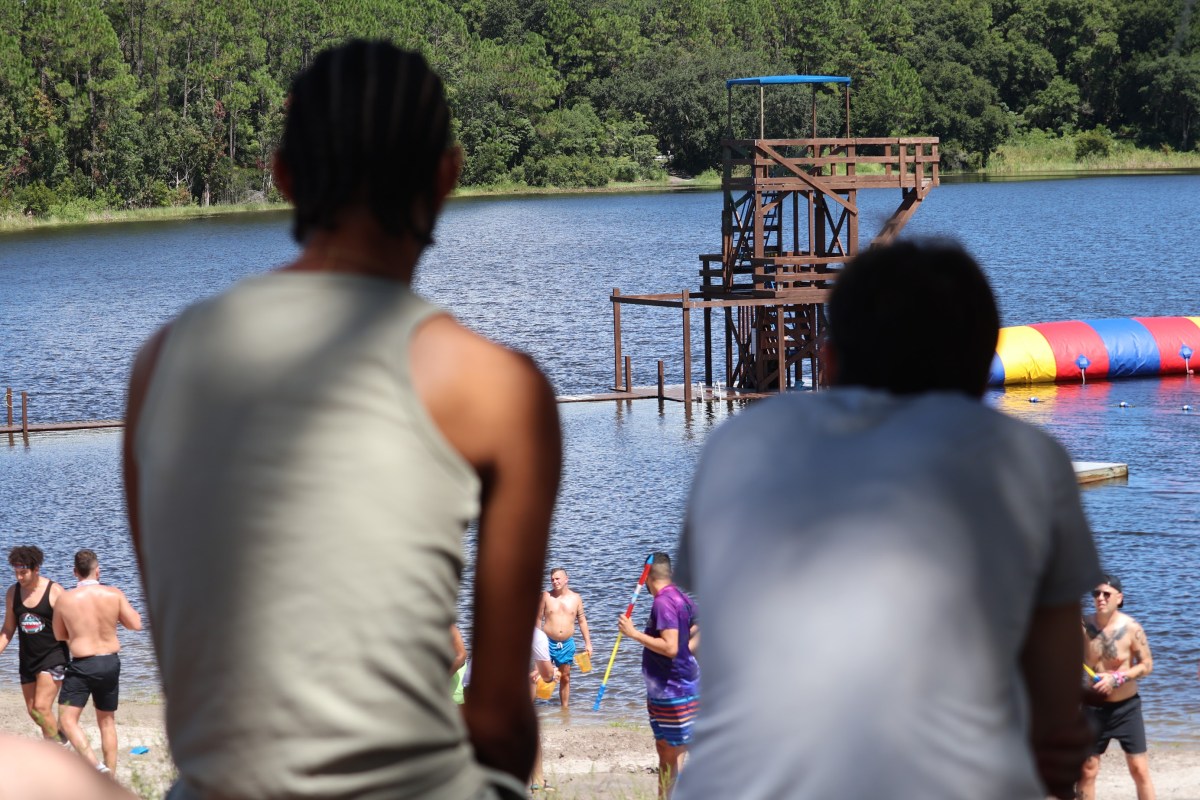
Of course, we had classic camp activities like capture the flag and red light, green light. All I did was run around in fields looking for vague brown objects in woodland terrain, stratgegizing with other queers along my path and yet, nothing ever felt so invigorating. I got to set out on a mission that means absolutely nothing in the grand scheme of life, and the youthfulness in that activity felt unparalleled.
We had Survivor classics, too, like the pole-building relay, the marble puzzle, and the fire-making challenge. While playing these kinds of games, I reflected on my current obsession with escape rooms and Nintendo Switch games and realized it stems from my childhood love of complex mystery-solving. As I was racing to place misshapen 3D pieces into a 3D mold of a campfire to complete the last phase of a four part relay, I looked across the table at my race partner —another queer woman —and realized this was all I ever wanted as a child. To be queer, safe, and young is a privilege most of us never had. Frantically moving pieces around, surrounded by new adult friends equally invested in the outcome of a silly game, I was queer, safe, and childlike.
My favorite challenge from the whole weekend was a game based on the concept of The Purge. The remaining players “alive” in the game were given tiny squirt guns and the name of a person to squirt. In order to make it to the next round of challenges, they needed to squirt the person they were given and avoid being squirted. As a ghost, I wasn’t able to play in the purge part of the game. However, us ghosts were given the opportunity to place bets on who will make it to the next round. There were no rules stopping ghosts from placing bets and protecting the people we placed those bets on, so we took action. Sitting on the “ghost” side of the campfire, we noticed that almost every femme-presenting person was on our side. The ratio was overwhelmingly skewed, so us queer femme ghosts took action. Throughout the entirety of purge, we formed a human shield around the remaining girls and nonbinary players, securing spots for the remaining few of us left.
It was clear from the first elimination that the gay cis men were dominating the game, something I was anxious about even before signing up for OUTVIVOR. My fear was coming to fruition. They were taking up so much space. It was seen, it was felt, and it was incredibly reflective of the Orlando queer community.
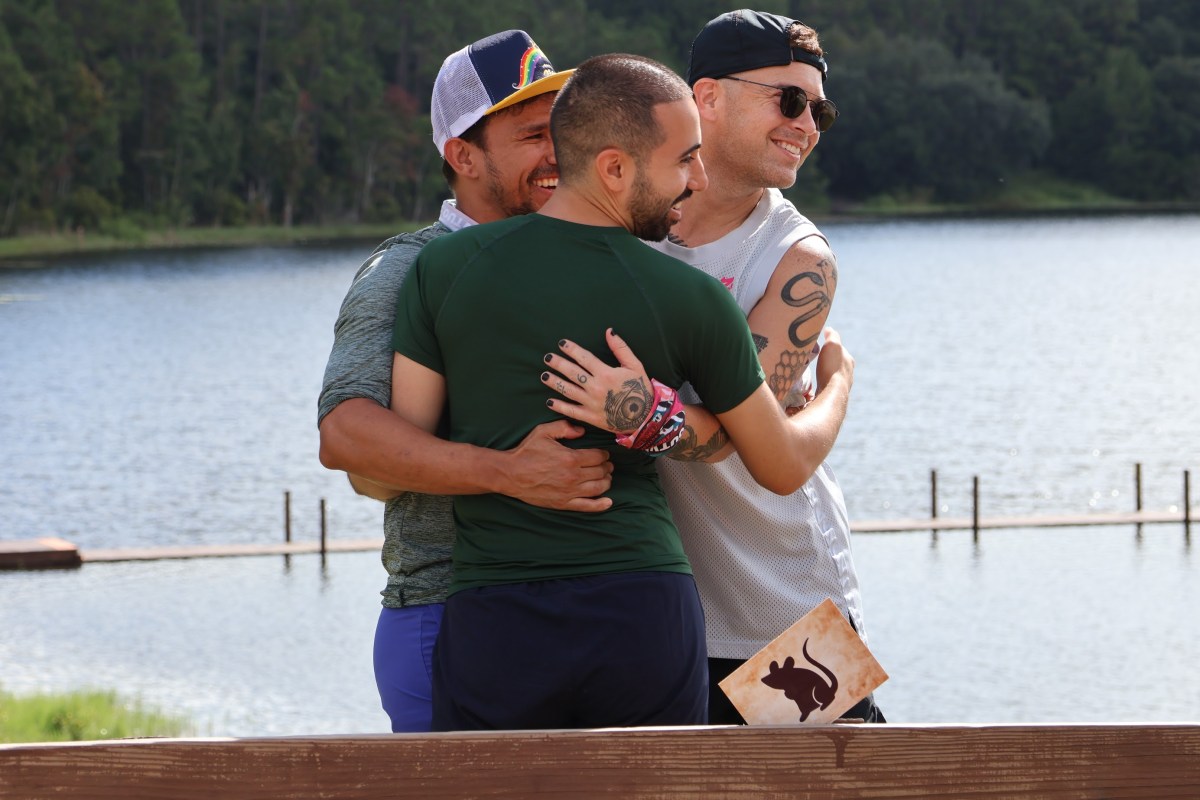
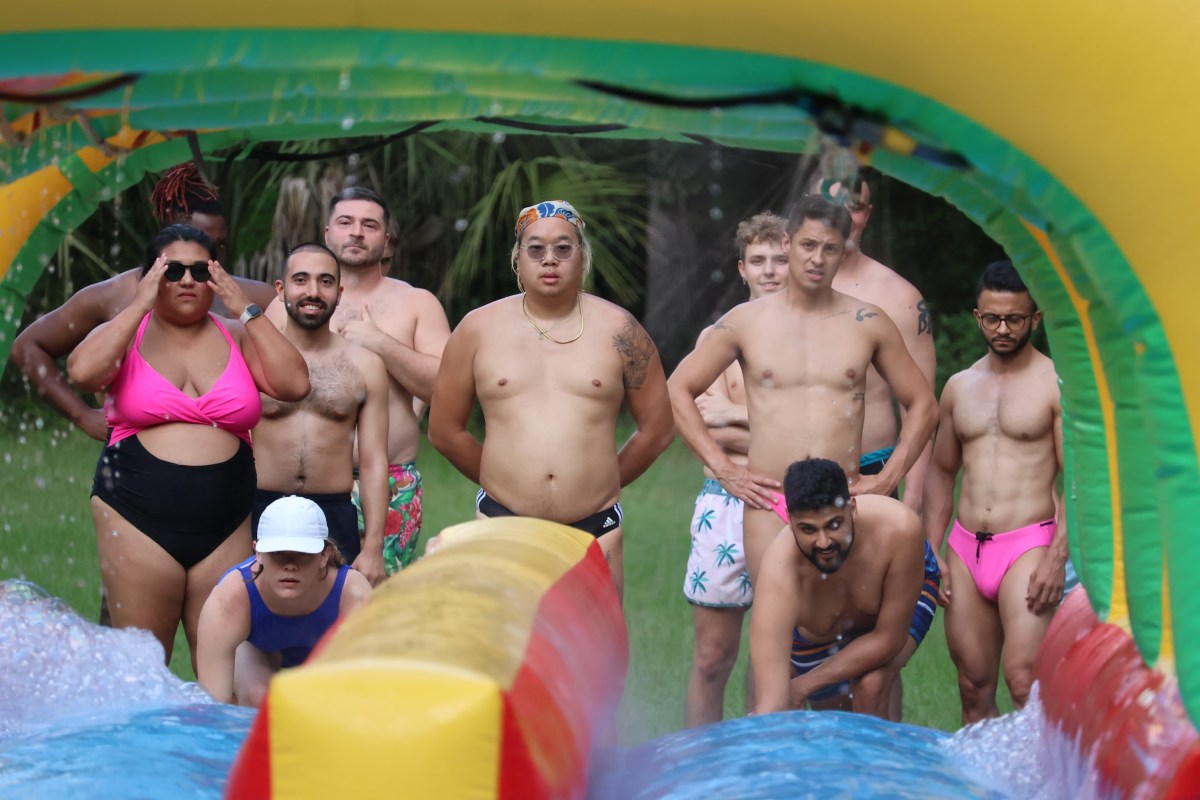
As a queer femme-presenting person in Orlando, I was in the minority at OUTVIVOR just as I am in the mostly gay cis male-dominated Orlando queer community. Shows like Survivor are appealing to me because they are a microcosm of their current social surroundings. Sure, the challenges and competitions are all fun and games, but the social and political landscape remains undeniably present. To ignore this aspect of the game is to have a certain level of privilege.
Host and co-founder Jeff Fusco clocked this behavior, suggesting using the next council to bring this to everyone’s attention and give us time to share our thoughts and feelings. While it certainly shifted the game for the better, it was still an ongoing concern many of us carried throughout the game.
Formally (for this piece) and informally (frolicking through the woods), Fusco told me he’s committed to seeing more diversity in OUTVIVOR participation. “My dream is that OUTVIVOR will represent the beautiful diversity that we see in our Central FL LGBTQ+ community,” Fusco says. “I want everyone to feel that it’s an opportunity that’s for them.” He’s hoping to achieve this through better outreach and marketing this year. “We’re trying to get queer people from Orlando, Jacksonville, Tampa and other cities to feel more interconnected and raise the quality of the entire Florida queer community,” adds Teixeira.
Fusco sees his role in LGBTQ+ advocacy in Florida as bringing people together through love, community, and resilience. Despite my reasonable critiques, I cannot stress how important it is that OUTVIVOR exists. As anti-LGBTQ legislation continues to target youth and trans people of all ages in the state, Florida needs our help. Of course, we do that through voting, advocacy, and donating to mutual aid and local organizations, but on a deeper level we must persist through community-building and embracing joy and play. We must collectively have fun, form friendships, and make connections. “Similar to the mission of OUT Sports, our purpose is to create an alternative space to build community and meet LGBTQ peers,” Fusco shares. Being a queer person in Florida can be challenging, but the challenges put forth by OUTVIVOR and the wider OUT Sports league are the fun kind, the kind that let us tap into creativity and camaraderie.
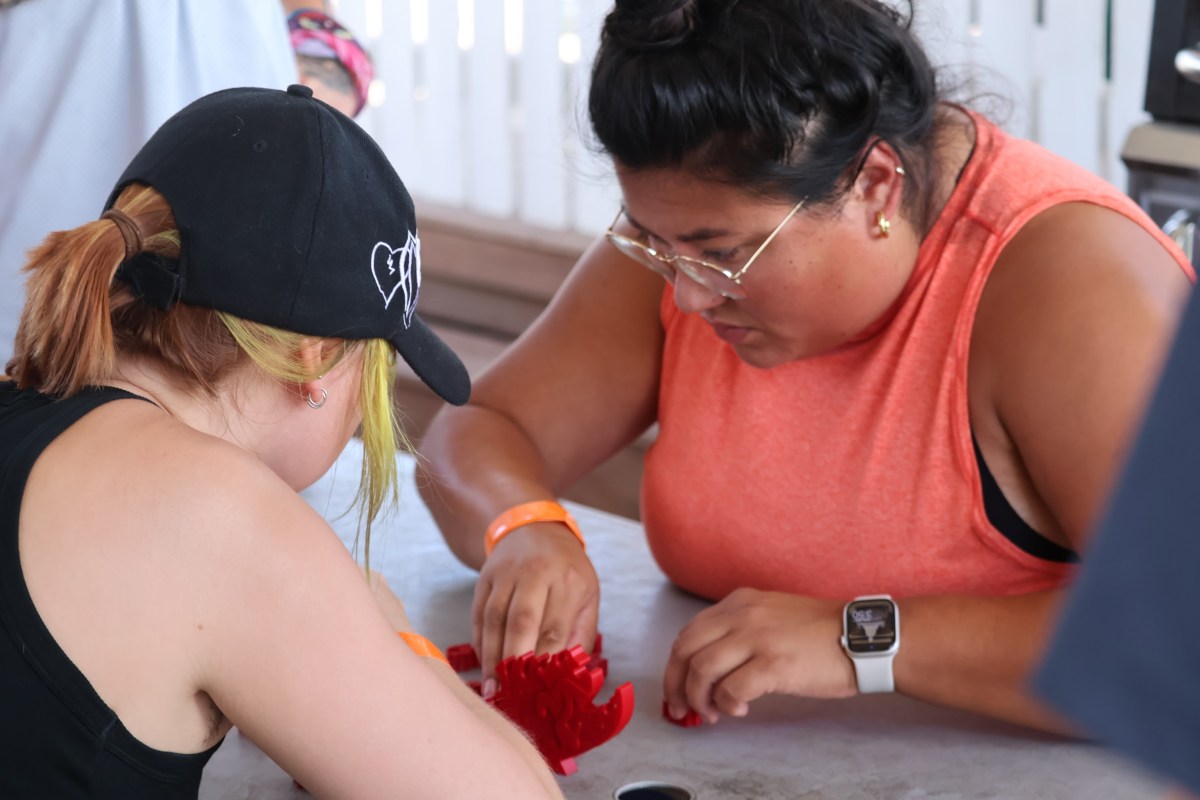
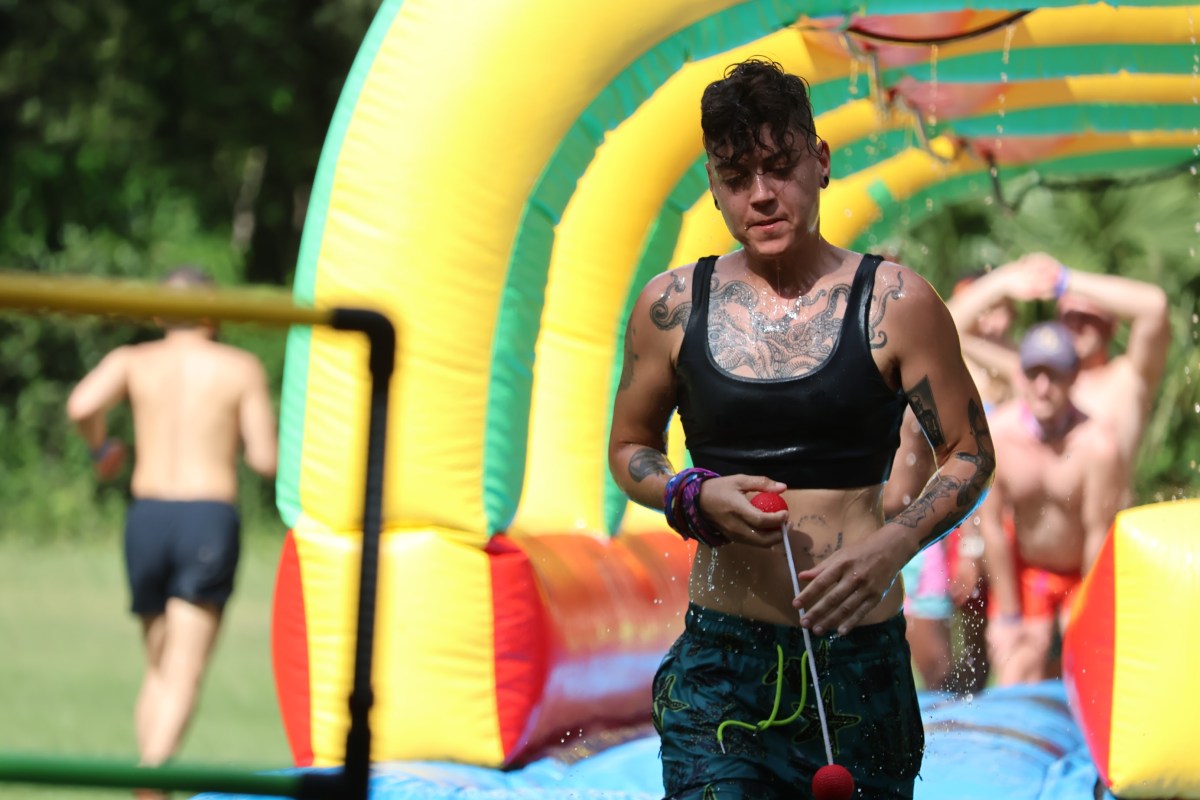
While there are indeed physical challenges to OUTVIVOR, the social strategy aspect also serves a deeper purpose. “Navigating the social game challenge is an entirely different set of skills,” Fusco says. “We found that the nature of the game forces people to establish trust and effective communication, which in turn helps them to build deeper bonds in a short period of time.”
One of Fusco’s favorite parts of the game is witnessing people overcome obstacles they didn’t think they could face. “As queer people, many of us didn’t have full opportunities to live robust childhoods and participate in sports,” Fusco says. “OUTVIVOR gives an opportunity to participants who are up for a challenge. We were very intentional to make sure we found a lot of opportunities for people to feel that they had accomplished something and had impacted the game, all while hopefully having a great time.”
After a (mostly) fun and (sometimes) stressful weekend, I can attest that I felt challenged, had a great time, and made new friends.
I wish I wasn’t voted off first, but that didn’t hinder my chances of making connections or testing myself. I played a (mostly) honest game, giving any strategy or tips I had to folks like me — POC, femme, genderqueer/questioning —just as I do in real life. OUTVIVOR forced me to see my own physical limits, but it also helped me see the limits of my community. The experience offered a place for me to observe, explore, and make an impact. I’ll be signing up for next year to get my vengeance, and I’ll be bringing all my femme, non-binary, and trans friends with me.








Comments
What i do not realize is in fact how you are no longer actually much more wellfavored than you might be right now Youre very intelligent You recognize thus considerably in relation to this topic made me in my view believe it from numerous numerous angles Its like men and women are not fascinated until it is one thing to do with Lady gaga Your own stuffs excellent All the time handle it up